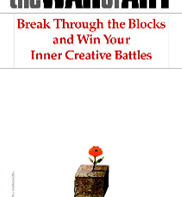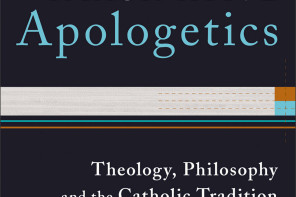
Transpositions is pleased to announce that Preston Yancey has now joined our rotation of regular contributors. Welcome, Preston!
Author’s Note: This article contains spoilers for the 2006 film Babel.
Last week, Christ and Pop Culture published an excellent article, “Counting Moral Indiscretions Is Not a Movie Review,” which left me considering films that I have watched and found theologically significant and have been dismayed to learn have been labeled morally bankrupt by Christian reviewers.
For instance, the 2006 film Babel combines multiple storylines as well as countries, spanning Morocco, the US, Mexico, and Japan, spiraling out from the inciting incident of an American tourist being shot on holiday in Morocco. The film garnered seven Academy Award nominations and was shortlisted by a number of critics, like Roger Ebert, as one of the best films of 2006.
But for all its poise, Babel is not without objectionable content. A central character in the narrative, Chieko, a Japanese teenager who is both deaf and functionally mute and whose mother recently committed suicide, frequently attempts to compensate for her feeling of isolation and abandonment by attracting men. Rarely is this successful, but we are not spared her attempts. Early in the film, Chieko removes her underwear and then twice lifts her skirt on camera to try and attract the attention of a group of boys sitting at a nearby table in a café.
Near the close of the film, Chieko invites a detective to her apartment under the pretense of revealing information about an ongoing investigation which links the gun used to shoot the American in Morocco with Chieko’s father. When the detective arrives, Chieko has him wait while she attends to something in her father’s study. Chieko walks out a moment later completely naked. She stands in front of the detective, who stares at her in a mix of shock and uncertainty.
Chieko attempts to seduce him, but he resists her patiently. His protest is tender, even gracious, and it is careful and slow how he removes his trench coat and wraps her in it. She cries softly, the sudden weight of her desire to be loved coming to a head, and the detective holds her clothed body tenderly for what feels to the viewer an impossibly long time.
Based on the nudity, some Christian critics of the film dismissed it entirely. PluggedInOnline, the critical arm of Focus on the Family, asserted: “Babel offers no real hope of salvation from the source of our sufferings. I know of only one: the God who offers forgiveness and hope through the sufferings of His Son in the universal language of unconditional love.”[1]
However, the insistence that the film fails to offer hope completely misses an opportunity to read Christian significance in the scene between Chieko and the detective. In the moment that Chieko presents herself naked, she does so out of a complete desire to be loved. The detective recognizes this and does not take advantage of her. Rather, he clothes her with something that was his own to give.
The parallel to Genesis 3 and God’s clothing of Adam and Eve with animal skins comes easily to mind. In the film, it is not hard to see the weary and desperate Chieko as a recently fallen Eve, unable to make sense of the world and desperate to be loved. She is not a sexual nude, much like Rembrandt’s Bathsheba, her face completely void of any desire but for want of attention, kindness, and mercy.
If objectionable content is the hermeneutic for what determines a film’s Christianity, a realistic depiction of the Scripture would never make it past a reviewer for PluggedInOnline.
However, if our hermeneutic is willingness to be surprised where and how we encounter the biblical God, we may be surprised what is in fact quite Christian.
[1] PluggedInOnline‘s review of Babel may be found here.
Image credit: official Paramount Pictures photo






Thank you for your thoughts. I teach at a Christian institution of higher learning and showed this film in a literary theory course because it addresses so many interesting and important issues. It had been about a year since I had seen the film (of course) so I had forgotten how explicit some of the scenes are. Afterward, I explained why I chose this film, and I made a case for its artistic merit, but I know that it crossed a line for several of my students. (This did not cause a ruckus with the administration, I am happy to report, although I’m not even sure that my dean heard about my showing it. I have been supported in other decisions along these lines that I’ve made in the past, so I wasn’t too worried.)
As an educator who is a Christian, I occasionally get the opportunity to make the case for the value of artistic merit regardless of a work’s content. Someplace toward the end of that discussion, of course, I usually comment on bearing with one another’s weaknesses (Romans 14-15), but I also believe it is essential that Christians not shy away from important cultural works, in a phobic manner. Which we tend to do all too often.
Again, thanks for your thoughts–you address this scene between the girl and the detective in a most interesting and effective way.
Thank you. I imagine the process of bringing this film into a classroom space to be a unique one. When I argue for its value as a judgement concerning myself, that’s one thing, but as a judgement involving others, discernment and discretion enter the conversation.
I’m curious how you have gone about discerning what is appropriate to push or what is perhaps best held back?
Hey Preston, thanks for this post. I actually wrote a post about Babel for Transpositions back when we were first starting Transpositions.
Here it is: http://www.transpositions.co.uk/2010/06/the-good-the-bad-and-the-babel/.
I also focused on the theme of ‘objectionable content’ in ‘good’ movies, though I used a different scene from the movie to make my point. Thanks for reminding me of this excellent movie!
I agree if a movie depicted all the acts which occured in the bible they would not be accepted by many Christian movie reviewers. Maybe this is why Christian films have such a hard time actually dealing with sin and present Christians who lack the failings of a fallen humanity. I spent the past few weeks writing an article about a very similar topic explaining that art, especially Christian art, should strive to be truthful in addition to presenting the gospel.
Then I also wrote a five part series for my website on the classical work “Pierrot Lunaire” by Arnold Schoenberg which is filled with numerous moral indiscretions and even denies the gospel early on in the work. What I was able to find in “Pierrot Lunaire” though is that Schoenberg was able to acurately portray what any person would do apart from God if the believe the gospel to not be true. The results are frightening but I think that many Christians could very easily see that they would have the potential to go down the same path if it were not for Christ. There of course is the other reaction where a Christian would think that at least I am not as bad as this guy. Anyways, interesting article and I look forward to what else you will bring to Transpositions.
Nice article. A recent New york Times article came to mind as I read this, <a href="http://www.nytimes.com/2012/08/19/arts/dance/nakedness-in-dance-taken-to-extremes.html?pagewanted=all&_r=0" title="Nakedness in Dance, Taken to Extremes". The writer draws an interesting distinction between naked and nude. Not necessarily along the same vein as your point, but interesting for similar reasons. Christians aren't the only ones who struggle with and ponder nudity in art.
The kind of shallow analysis you quote from the review of the movie is the kind of response that pretty much made me abandon most Christians in any discussion of the arts for almost two decades. Just wasn't worth the aggravation.
One reason I appreciate this site. It gives me hope.
Joe
Dang. Still mucked that up:
Joe
Really? I can never get this stuff right. Well, the article is good all the same.
Joe
Yes! I loved that article and it generated some very interesting conversations among some of my friend within and outside of the arts community. The distinction between naked and nude is a curious one, at least right now. It’s reflected even in conversations that seem beyond it, like breast feeding in public.
There’s a reason why we wear clothes and it’s because sin has distorted the way we see our nakedness.